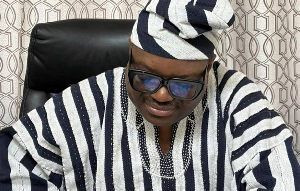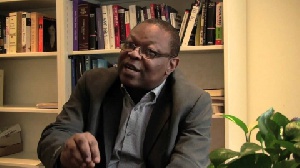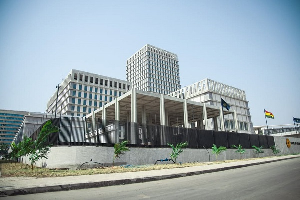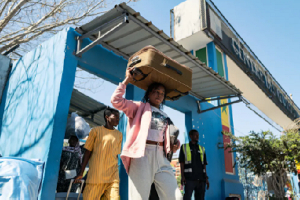Mr. Emmanuel Bombande, Co-Founder and immediate past Executive Director of the West Africa Network for Peacebuilding (WANEP), has lauded Ghana for being an important player in the Responsibility to Protect (R2P).
He said five years after the world summit on R2P in 2010, Ghana and Denmark established the national R2P Focal Points initiative, in collaboration with the Global Centre for the Responsibility to Protect, a member of the International Coalition on R2P; with Australia and Costa Rica subsequently joining as co-facilitators of this initiative.
He further explained that by this initiative, a national R2P Focal Point is a government official appointed by the state with the responsibility for mainstreaming the R2P and mass atrocities prevention within the state.
“R2P is important as one of the mechanisms to enhance on how we prevent violent conflicts that often produce atrocity crimes and also how we contribute to promote human security,” Mr Bombande stated at the weekend in Accra at the launch of WANEP a research project on R2P dubbed: “Assessing National and Regional Capacities for Implementing R2P in Ghana and West Africa”.
He urged the media to utilize the early warning systems and work in close collaboration with civil society organizations like WANEP, to raise public and government attention to issues of extremism and mass atrocities in the region.
Mr Bombande said in Ghana’s local context, the threats of atrocity crimes were pervasive in the political rhetoric of ethnic and regional exclusion.
He said some of the political discourse was intolerant, denigrating and very disrespectful with the consequence of heightening social and political tensions, and such threats often escalating in election seasons.
“At the regional level, we are increasingly being engulfed by the threat of violent extremism that is senseless, cowardly and callous in the killings of thousands of vulnerable people as we see now weekly with the activities of Boko Haram in north-eastern Nigeria and insurgent extremist groups in northern Mali and the Sahel belt,” Mr Bombande stated.
“Efforts to prevent or respond to atrocity crimes can succeed only if they are the product of inclusive processes that engage national and local authorities, as well as civil society, including human rights organizations, traditional leaders and women’s groups,” he pointed out.
He said it was pertinent particularly for media practitioners to note that the atrocity crimes do not just happen in a country by accident.
He said: “None of the countries in which crimes were committed simply found themselves in such volatile conflicts.
“The environment for atrocity crimes is first of all created and nurtured to produce a climate of intolerance and hatred.
“Once we pretend we do not see what is happening or simply ignore such environment of high-level intolerance, it only now depends on the time and moment around a particular event for a trigger to exploit the already charged intolerant environment.”
Declaring that from then on, it only takes hours and days, and an entire country could be engulfed in violent destruction with the consequent atrocity crimes.
Mr Bombande, who is the Lead Researcher for the R2P project said: “It is against this background that it is not only important to understand the international norm and principle of R2P but more importantly, to appreciate such norm in our national and regional context and what we must all be doing particularly at the level of pillar one, prevention”.
General News of Sunday, 11 January 2015
Source: GNA
Ghana is an important player in Responsibility to Protect – Bombande
Entertainment

Chez Amis CEO addresses NACOC arrest allegations
Opinions










